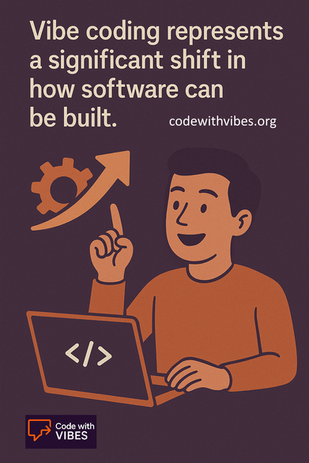Current landscape
The emerging "Vibe Coding" philosophy, human-AI collaboration that leverages the strengths of each, is exciting and unpredictable, the landscape will keep evolving, but the core of technology work, especially deep problem-solving, user-centric design, and meaningful innovation, remains fundamentally human-powered, enhanced by AI collaboration.

Rapidly Shifting Demand for Engineering Talent
While AI drastically accelerates initial development, engineers aren't becoming obsolete—rather, their roles are changing. Now, more than ever, the ability to critically assess AI-generated code, refine architectures, and ensure maintainability and security is paramount.

Startups and Equity Dynamics Shift
Founders now have greater leverage: less need to dilute equity early on, allowing for more strategic allocation to genuinely impactful partnerships. Early-stage negotiations might shift from technical feasibility to market validation, growth strategy, and user acquisition.

Dramatic Reduction in Costs and Time-to-Market
Dramatic Reduction in Costs and Time-to-Market
Startups no longer need expensive, lengthy MVP cycles. This democratizes innovation and greatly lowers entry barriers, allowing more ideas to be tested faster. The pace of innovation and product validation is unprecedented.

Rapid Prototyping and Market Validation
The barrier to experimenting with new ideas has fallen dramatically. This encourages experimentation and innovation—but it also increases competition, as many players can quickly enter markets. Speed to market and unique user experiences will be vital differentiators.

Technical Know-how Remains Essential
While AI can generate initial codebases rapidly, expertise is essential to handle scaling, security, optimization, and troubleshooting. AI-generated code often needs human insight to move beyond a prototype stage. Thus, rather than eliminating engineers, it pushes them toward more high-value tasks and strategic decisions.

Potential Risk to Traditional SaaS Models
The value proposition of many SaaS services is challenged. Companies must differentiate not merely by providing tools but by offering deep integrations, exceptional user experience, advanced AI-driven features, or unparalleled customer support.
Where Does It All Lead?

1. Specialization and Strategic Engineering
Human developers move toward specialized roles, focusing on critical thinking, architecture, optimization, and governance.
2. AI Engineering Roles
A new wave of positions focused on prompting, fine-tuning, and managing AI-generated outputs emerge.
3. Increased Market Competition and Innovation
Lower barriers mean more entrants, forcing continuous innovation and agility.
4. Collaborative Workflows
Rather than displacing engineers entirely, we’re entering a phase where AI becomes a co-creator—augmenting human productivity dramatically.













